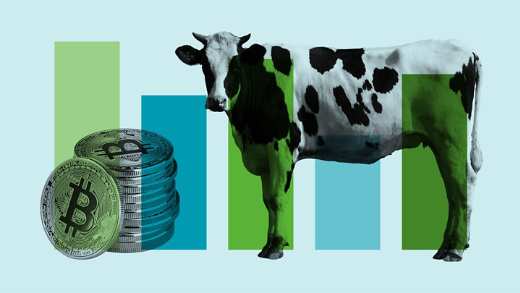We take a visual approach to explain what’s happening with UK inflation, web traffic for ChatGPT and Threads, and the slower-than-expected recovery of China’s economy.
Read this article to understand:
- Why the UK is an outlier when it comes to inflation
- Whether ChatGPT and Threads are here to stay
- The reasons behind China’s sluggish recovery
Inflation is easing, but more in some places than others
The last couple of years have been difficult for consumers globally because of high inflation; the UK is no exception.
The spike in inflation was initially fuelled by supply chain bottlenecks
Initially, the spike in inflation was fuelled by supply chain bottlenecks, caused by pent-up demand as economies began to recover after COVID-19. The situation was exacerbated by the Russian-Ukraine war, which disrupted the supply of key commodities, particularly natural gas.
After hovering around the Bank of England’s two per cent target since 2017, UK inflation has surged since 2021, reaching a peak of 11.1 per cent in October 2022 (see Figure 1). According to the Rising cost of living in the UK report by the House of Commons, inflation has not hit such highs for more than 40 years.1
Figure 1: UK Consumer Price Index (per cent)
Source: Aviva Investors, Eikon. Data as of June 28, 2023.
Despite falling since then, inflation remains high at 7.9 per cent, as of the end of June.
But how does this compare to other economies? According to data from the Organisation for Economic Cooperation and Development (OECD), UK inflation has proved stickier than it has in other G7 countries (Figure 2).2
Figure 2: June inflation figures for G7 countries versus Eurozone average (per cent)
Source: Aviva Investors, Eikon. Data as of July 27, 2023.3
A quick breakdown of the UK Consumer Price Index (CPI) illustrates the main reason for that stickiness. According to the Office for National Statistics (ONS), food inflation was 17.4 per cent in June.4 According to the International Trade Administration, the UK imports around 46 per cent of the food it consumes, making it vulnerable to price spikes in other countries.
Figure 3: UK CPI by sector, May versus June 2023 (per cent)
Source: Aviva Investors, ONS. Data as of June 2023.5
ChatGPT and Threads: Fad or fabulous?
ChatGPT, Open AI’s generative artificial intelligence chat box that can generate articles, code and much more besides, burst into the public consciousness on its launch last November. Its rapid rise has seen it become one of the most-visited websites in the world; according to Similarweb data, in the year to July 31, it was more popular than streaming giant Netflix and Microsoft search engine Bing.6
A similar story can be seen with Meta’s new social media platform, Threads, which launched on July 6. Threads, which defines itself as an app “for sharing text and joining public conversations” saw more than 49 million active users one day after launch.7,8
According to Statista, Threads and ChatGPT reached the one million user mark quickly – just one hour and five days after their launches, respectively.
Figure 4: Time taken to reach one million users
Source: Aviva Investors, Statista. Data as of July 7, 2023.9
The big question is whether such interest is sustainable. Traffic on Threads almost halved in just a week, dropping to 23.6 million users on July 14, while June saw the first month of traffic decline for ChatGPT, down almost ten per cent on May’s numbers.10,11
Is China losing ground?
After decades of strong economic growth, which saw China rapidly catch up with major economies, a slower-than-expected recovery after the lifting of zero-COVID restrictions has raised questions about the country’s long-term trajectory.
In 2022, Chinese GDP grew three per cent, well short of the government’s official 5.5 per cent target.12 And while the numbers have improved in 2023, they are still below expectations.
Chinese GDP grew 6.3 per cent during the second quarter, far below the 7.3 per cent expected by the market. Signs of a more challenging environment can be seen in different parts of the economy. Unemployment among people aged 16 to 24 has hit a new record of 21.3 per cent, while long-term problems in real estate continue to manifest.13
Figure 5: China GDP annual growth (per cent)
Source: Aviva Investors, Trading Economics. Data as of July 2023.14





